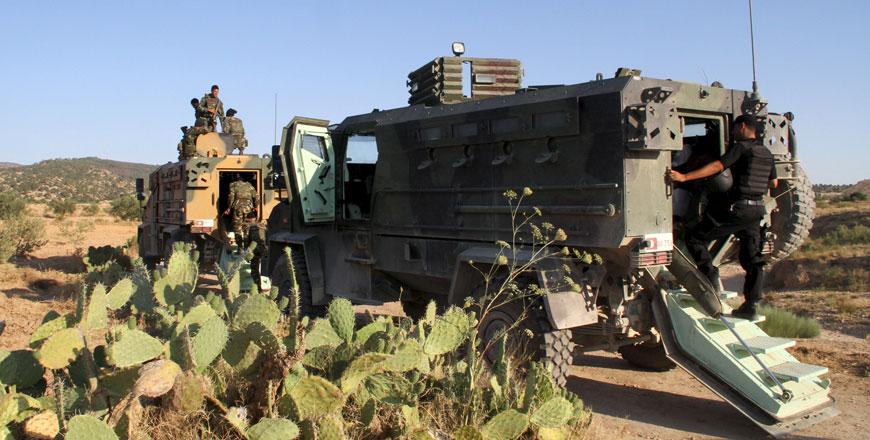You are here
Tunisia seeks to wrest back control of radicalised mosques
By AFP - Mar 13,2014 - Last updated at Mar 13,2014
TUNIS — Tunisian authorities are seeking to regain control of certain mosques they say have become incubators for radical Islamist ideology, which has spread since the 2011 revolution.
The move follows the January resignation of a government led by moderate Islamist party Ennahda, which was heavily criticised for failing to stem a rise in jihadist violence.
The violence came as militants benefited from a post-Arab Spring power vacuum across much of North Africa.
“Two weeks ago we began implementing a strategy to recover mosques outside our control, within a period of not more than three months,” Abdessattar Badr, a senior official at the ministry of religious affairs, told AFP.
According to Badr, around 150 of Tunisia’s 5,100 mosques are outside the state’s control, including some 50 under the influence of radical imams, or prayer leaders. Others say the real number is higher.
Many mosques beyond the reach of the state are controlled by “people who don’t have the least qualification to be imams”, and who “have transformed the mosques into dormitories and restaurants”, the ministry official said.
Interior ministry spokesman Mohamed Ali Aroui said that after the ouster of longtime autocrat Zine El Abidine Ben Ali, who harshly suppressed Islamists, more than 1,000 mosques fell into the hands of extremists.
“They kicked out the imams appointed by the religious affairs ministry on the grounds that they were remnants of the former regime,” Aroui explained.
Today “they are inciting violence against the security forces and the army in their sermons, calling them tyrants,” he added.
“They also call for jihad in Syria and try to spread extremist ideas from abroad into Tunisian society.”
The violence that accompanied the growing assertiveness of radical Islamists in Tunisia culminated last year with the assassination of two secular politicians in separate attacks blamed on jihadists that plunged the country into turmoil.
‘Written commitments’
The crisis eventually forced the departure of the Islamist-led government and brought a replacement by an interim Cabinet of technocrats after a long-delayed new constitution was finally adopted in late January.
The constitution, a compromise that reduced the prominence of Islam, tasked the state with ensuring the political neutrality of mosques.
Badr said a committee consisting of representatives from the interior, religious affairs and justice ministries had been formed to enforce the government’s new strategy of reasserting control.
“Every week we draw up a list of mosques to be recovered, after having officially tasked moderate and tolerant imams with supervising them,” he said.
“Before acting, we talk with those who took over the mosques, who then sign a written commitment” to leave them, the ministry spokesman added, without indicating what measures would be taken if they refused.
A similar policy has been adopted in Egypt, where the military-installed authorities have started tightening their grip on mosques and dictating the themes of weekly Friday sermons, in a bid to curb dissent by Islamists loyal to ousted president Mohamed Morsi.
On Tuesday, Tunisian Salafist preacher Khamis Mejri was placed in pre-trial detention for preaching at mosques in the northern city of Bizerte without authorisation.
A law dating back to 1988 bans “any activity in mosques, in the form of speeches, meetings or writings, by people not belonging to the institution that oversees their work, unless authorised by the prime minister”.
Separately, the ministry of religious affairs announced on Monday that it was going to fix the opening hours of mosques in Tunisia, for the first time in three years.
But as in Egypt, some fear the intention is to silence dissent on the pretext of combatting terrorism.
“The ‘neutralisation’ of mosques was a strategy pursued by [former presidents Habib] Bourguiba and Ben Ali, which transformed the mosques into mouthpieces for their regimes,” said Houcine Labidi, imam at the Zitouna Mosque in Tunis.
He called the new policy a threat to democracy.
Under Ben Ali’s rule, regular mosque-goers, particularly those who attended dawn prayers, were often investigated and summoned to the interior ministry, which also drafted Friday sermons.
Related Articles
Soon after Islamist militants gunned down 21 foreign tourists in Tunisia's Bardo museum last month, newspaper columnists, radio hosts and politicians swiftly called for a merciless crackdown to save their young democracy.
SOUSSE, Tunisia — In late 2013, two young Tunisians returned from a jihadist camp in Libya planning to blow themselves up among foreign tour
TUNIS — Tunisia announced Thursday it is launching a campaign to counter religious extremism among its youth after a string of deadly milita












